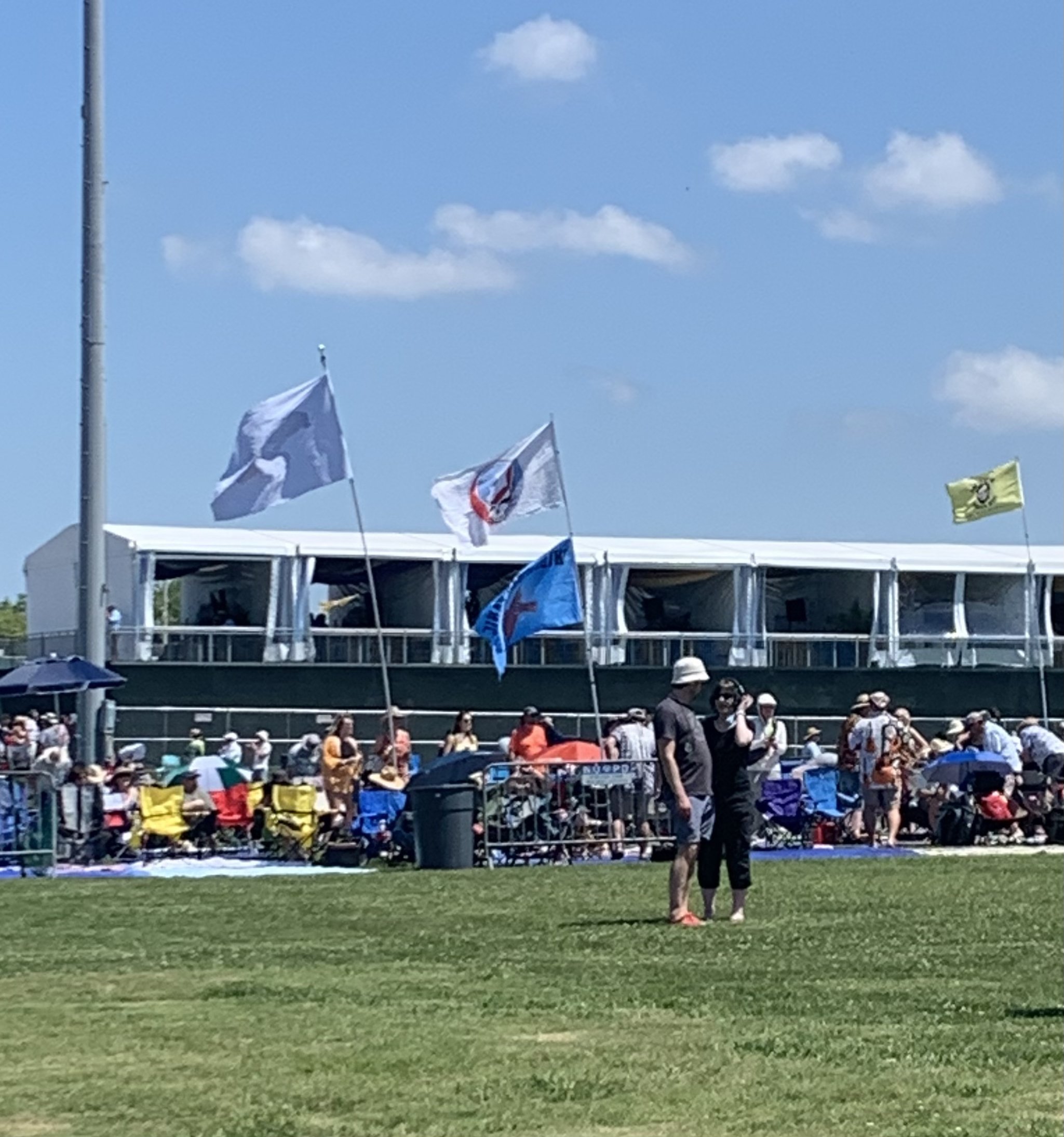Leyla McCalla Brings Her New Community to Jazz Fest

On "The Capitalist Blues," the long-time solo artist surrounds herselves with a new band.
Leyla McCalla has largely conducted her career as a lone wolf, performing with just her cello or her banjo, or on occasion a second voice or instrument. Many people first encountered her as a member of the Carolina Chocolate Drops, but that was a fairly intimate acoustic ensemble, and her first two solo albums—Vari-Colored Songs and A Day for the Hunter, A Day for the Prey—are defined by her instrument and singing as she explored her Haitian Creole heritage.
Her path has become less solitary, though. On A Day for the Hunter…, she invited other local artists on a similar musical path including Louis Michot and Don Vappie to make guest appearances, and on the recent The Capitalist Blues, she worked with a full band backing her. That wasn’t McCalla’s plan, but when Jimmy Horn of King James and the Special Men invited her to sing on “Eh La Bas,” a 45 he released recently on Special Man Industries, she enjoyed the experience and talked to Horn about the material she was writing for an upcoming album. Horn’s enthusiasm for the songs and the ideas she had, matched with the fun she had fronting a band, prompted her to ask him if he would produce the album with the Special Men accompanying her.
The results embrace community on a number of levels. McCalla literally surrounds herself with people, and she makes herself more of a part of the New Orleans music community by playing with local musicians. The lyrics speak to concerns that are very real in the community she lives in, including elevated lead levels in the Bywater’s Markey Park—a problem that became real for her when one of her children was found to have elevated lead levels as well. As the album title suggests, the growing gap between the haves and have nots is on her mind as it’s affecting New Orleans and the rest of the country. By situating her thoughts in dance music, McCalla features that music that literally brings people together.
For the first time, McCalla will perform with a band when she plays Jazz Fest on Friday at 12:30 p.m. on the Sheraton New Orleans Fais Do Do Stage. We talked by email recently about The Capitalist Blues and finding her community in New Orleans.
When you play Jazz Fest, will you play with a band?
I’ll be playing with my band, which includes drums, bass and electric guitar. I’ve been touring with this lineup for the past six months and it’s been a great experience developing a sound with these elements.
Did you imagine the songs on The Capitalist Blues as being songs for a band, or did you have to adapt them to a band?
I always imagined the songs as their own little worlds, connecting them to each other through the history of New Orleans, where Haiti plays a huge role in shaping Louisiana culture and history in general.
I find that adapting my songs to a band is not the issue. It’s more, can the band adapt to playing my songs. Though the songs generally have a lighter touch, it’s been very life-affirming to expand the dynamic range and potential of the songs while also maintaining the sense of intimacy and thoughtfulness that I like to put into my arrangements.
Your macro project as an artist has been an exploration of your Creole heritage. What’s the goal behind that? I felt like The Capitalist Blues is very much about community; is there a connection between that your pursuit of Creole culture?
Before I moved to New Orleans, I always thought of Kreyol as a language, so it’s been really eye-opening to me to start exploring it as an identity. I am always reconciling my American-ness with my Haitian-ness and I find myself caught in this historical feedback loop, trying to share what I’ve learned of the interconnectedness of these two places.
How does Our Native Daughers fit into either of the projects—Creole heritage or pursuit of community? [In February, Smithsonian Folkways released Songs of Our Native Daughters, a collaboration between Rhiannon Giddens, Amythyst Kiah, Allison Russell and McCalla.]
Our Native Daughters is an exploration of black women as markers and makers of social change in the United States. As a black woman myself, it aides me in unraveling the layers of prejudice and otherness this that I carry with me every day. It’s really interesting to realize the strength of a collaboration like this and even more eye opening to see what this means for other people.
Still, I’m a solo artist because I feel there are paths that I want to go down that require a lot of freedom for exploration.
What do you get from working with Louis Michot [of Lost Bayou Ramblers, which will play the same Sheraton New Orleans Fais Do Do Stage on Friday at 2:50 p.m.]?
Louis is a unique combination of a musician who’s been steeped in traditional music and yet also incredibly open-minded and progressive. He brings an openness to the creative process that is both refreshing and liberating!
What did you get from working with Jimmy Horn?
Jimmy has musical instincts like a shark. He hears the potential in a song and he digs into creating that with grit, tenacity and soul. He is never without opinion about what direction to move and that sort of directness really helped me to thing big about my songs. I will carry that for rest of my life.






